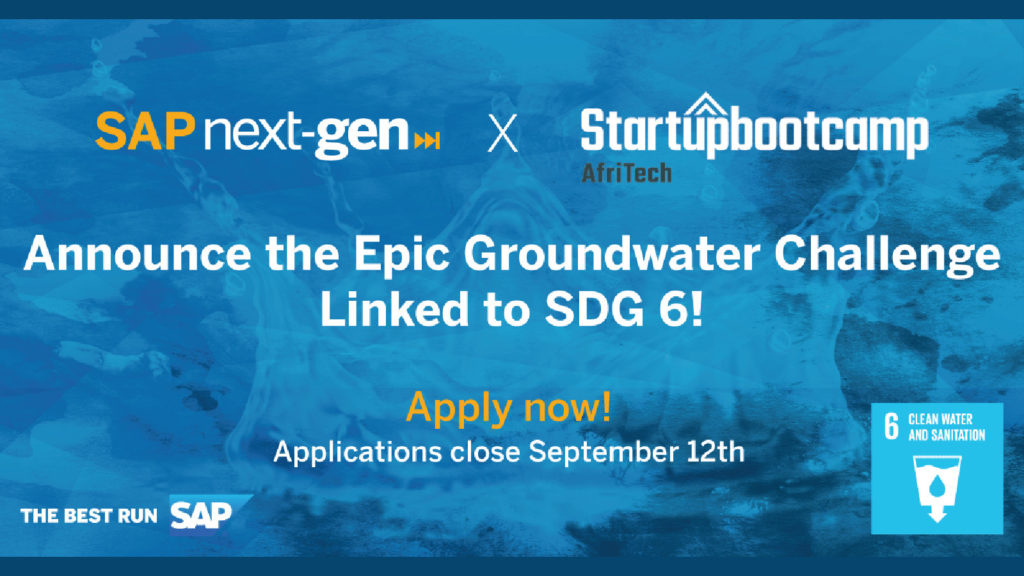LG’s 100-Inch QNED evo AI TV Redefines Big-Screen Viewing in South Africa In a bold leap forward for home entertainment, LG Electronics South Africa…
SAP Next-Gen, Startupbootcamp AfriTech partner for Epic SDG Water Challenge

SAP Next-Gen and Startupbootcamp (SBC) AfriTech have partnered to launch the Epic SDG Water Challenge, an initiative which seeks to tap startup innovation to accelerate solutions around clean water and sanitation.
Entries for the challenge close on 12 September. From next month to January selected startups will collaborate with corporates to rapidly scale solutions for water-resource management challenges with potential for global impact.
In a statement yesterday (27 August), Startupbootcamp AfriTech co-founder and CEO Philip Kiracofe described water resource management as a “critical challenge of our time” and stated that the accelerator believes startups can play a key role in developing disruptive solutions.
The Epic SDG Water Challenge seeks to address the UN’s Sustainable Development Goal 6 — Clean water and sanitation
“Through the Epic SDG Water Challenge, we will accelerate startups from around the world that are focusing on: water management, waste water treatment, water conservation, water quality, water supply, smart water use, and sustainable development, developing bold new solutions aligned with UN Sustainable Development Goal 6,” added Kiracofe.
SAP Next-Gen global head and senior vice president Ann Rosenberg said her organisation’s partnership with SBC AfriTech is an example of how crowdsourcing knowledge from a global community of startups, citizens and other related parties can help uncover solutions to address the UN’s Global Goals.
Startups addressing the following areas are encouraged to apply:
- Devices, techniques and or services to detect and monitor new and existing groundwater sources and measure consumption
- Novel approaches to improve efficiencies for formal and informal irrigation
- Services to predict and detect weather-related shocks — like droughts and floods — and notify areas of potential impact
- Techniques to address water scarcity and reduce over-drafting of groundwater, stream depletion, land subsidence and salinity
- Devices to monitor groundwater levels to estimate the recharge rate, determine direction and gradient of flow and understand and manage aquifer systems
- Groundwater-availability modelling and decision-support system for better water resources management and allocation
- Predictive modelling for future groundwater usage
Selected startups will participate in a tailored programme with supporting corporates on launching scalable and sustainable solutions. The programme will include master classes, mentoring, and opportunities to run lean pilot engagements with the sponsoring corporations.

